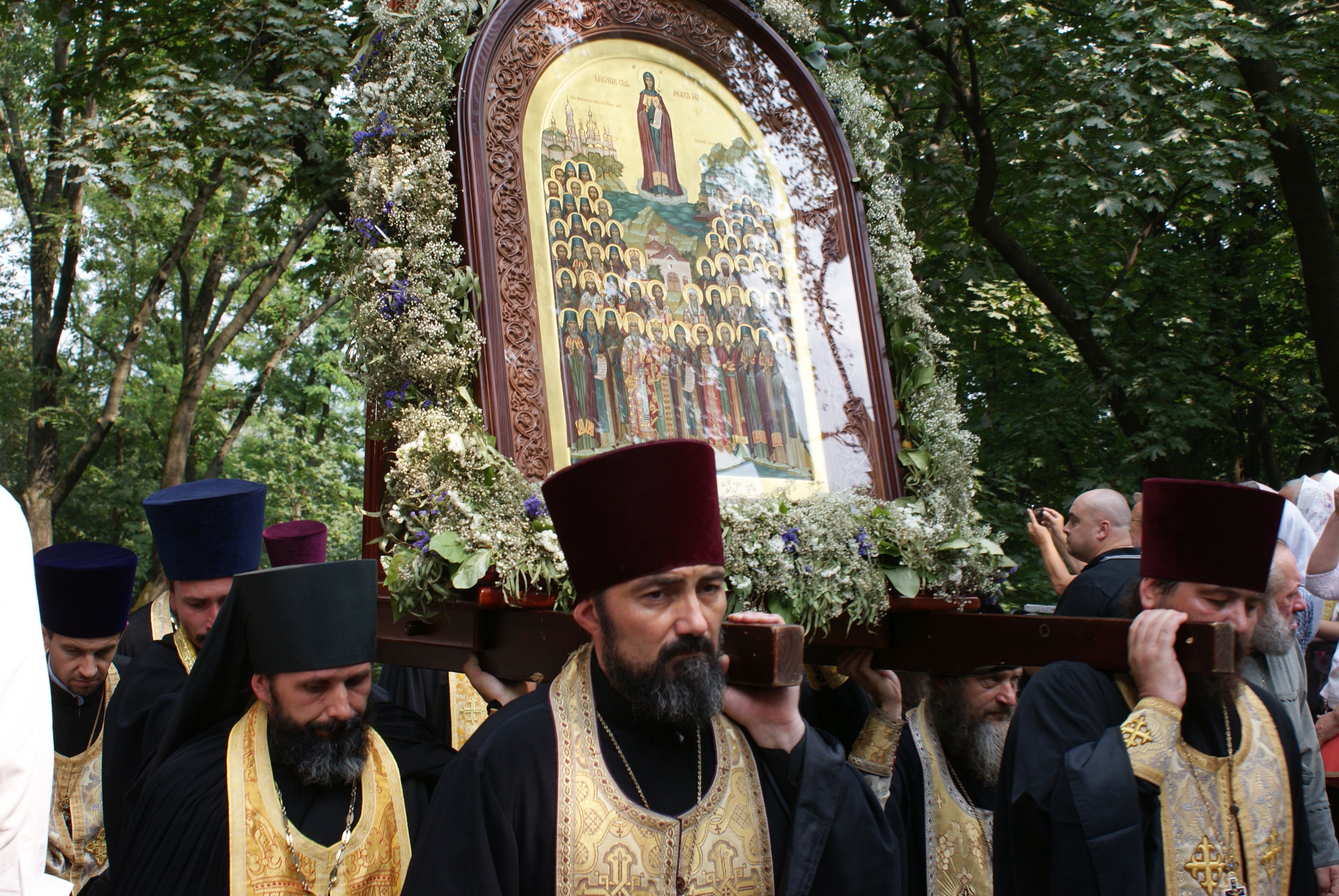St Volodymyr Day procession in Kyiv. A religious or political event?
On July 27th around ten thousand people marched through the streets of Kyiv. Members of the Ukrainian Orthodox Church of Moscow Patriarchate from all over the country gathered in the capital to participate in a litany on St Volodymyr Hill and a procession for peace in Ukraine. Some of the pilgrims walked to Kyiv on foot from their hometowns all over Ukraine.
July 28, 2016 -
Kateryna Pryshchepa
-
Articles and Commentary

As the procession was strongly supported by the former members of the Party of Regions, and the current opposition, many in Kyiv feared that it would constitute a cover up for an attempt to stage riots in the capital or protests against the current government. The event therefore attracted an unprecedented attention of the media, police and special forces.
Heavy security measures were put in place in the capital. The area of a dozen or so square kilometers around the St Volodymyr’s Hill and the passage from the hill to Kyiv Pechersk Lavra were made a high security zone. The police and National Guard blocked all streets leading to that area and those who wanted to enter, had to go through metal detector and have their bags checked. No cars were allowed in that part of the city for most of the day.
Some of the participants of the procession were seen wearing St George’s ribbons, which have been strongly associated with separatism, Russian mercenaries and the “vacation soldiers” fighting in Donbas. There were also people carrying portraits of tsar Nicolas II and imperial flags, although by the time the processions reached Kyiv, the participants carried mainly icons and other religious symbols.
Among official figures who supported the procession were the former chief of Dnipropetrovsk regional state administration, Oleksandr Vilkul, the long-time political partner of Viktor Medvedchuk, Nestor Shufrych, and Vadym Novynskyi – a businessman, MP and a former Russian citizen. Vyacheslav Pikhovshek, a journalist, who made a name working in the service of President Leonid Kuchma and then continued his career in collaboration with the Party of Regions, provided PR support for the procession.
The pro-government media presented a largely critical coverage of the pilgrimage. As a result, many local inhabitants attempted to stop the march approaching the capital, as there were genuine fears of possible clashes once the pilgrims arrive in Kyiv. A group walking from Sviatohirsk was stopped not far from Kyiv for over a day, because the authorities of Boryspil denied the column to pass through the town’s territory. In the end Ukraine’s police chief negotiated with the organisers of the pilgrimage that the group will reach Kyiv by buses. There were also reports that in some villages as the pilgrims passed by, people threw eggs and rotten vegetables at them. They believed that the participants of the procession were “Russian agents”.

28 July is the day of St Volodymyr – a Kyiv prince who, according to the most common version, married a Byzantine princess and baptised the Kyivan Rus’. When in 2013 the Moscow patriarch Kirill came to Ukraine to celebrate “1025 years of the baptizing of Rus’”, the date gained a status of an important holiday in the Orthodox calendar. The reason was twofold: it aimed to “strengthen the ties” between Ukraine and Russia and prevent Moscow Patriarchate parishes in Ukraine from turning to the Ukrainian Orthodox Church of Kyiv patriarchate. The Moscow Patriarchate in Ukraine has used the event to raise its status in Ukraine, as from the beginning of the war in Donbas, it has been labelled a “sponsor of separatism”.
For the participants of the litany, the pilgrimage was a chance to visit Kyiv, Pechersk Lavra and participate in important religious event. Some remarks in the crowd suggested the participants were rather critical of the government, however, no political talks and discussions were parts of the official programme of the event. Many participants passed notes to the Lavra priests asking for a prayer or blessing.
The event ended peacefully in the evening. Although no political statements were made during the day, it may have political implications. Clearly the opposition have raised their morale by proving their skill of mass organisation.
Kateryna Pryshchepa is a PhD student at Graduate School for Social Research (Institute of Philosophy and Sociology of the Polish Academy of Sciences). She previously graduated in European Interdisciplinary Studies from the College of Europe and philosophy from the University of Kyiv-Mohyla Academy (Ukraine). As a journalist in Ukraine she covered Ukraine-EU relations, among other issues.






































